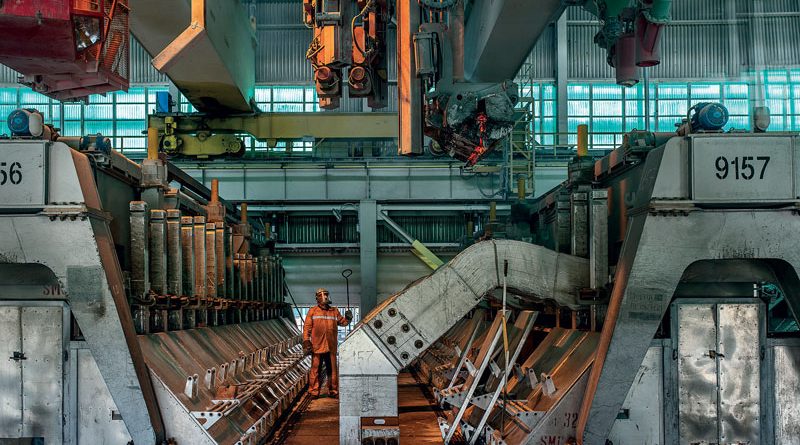Rusal Proposed Move to Split into Two Different Businesses
The operation will see Rusal change its name to AL+ and focus on value-added, low-carbon aluminium, while an as-yet-unnamed Newco will focus on developing growth in the Russian domestic market, and potentially China and emerging countries
Important changes have been announced for Rusal, the largest aluminium producer outside China, which is 57% owned by EN+, the hydroelectric-metallurgical group listed on the London Stock Exchange. The group has decided to split its refining and smelting operations based on and depending on its CO2 footprint. According to the proposed transformation communicated in the past few days, Rusal plans to change its name to AL+, will use the most modern plants of the group to focus on the fast-growing market of “green” and higher value-added aluminium, will keep the mining activities upstream of the light metal production chain and the share of almost 28% in the metallurgical group Norilsk Nickel. The other smelters, along with the four alumina refineries and two bauxite mines, the raw material needed to produce alumina and eventually aluminium, will be controlled by a Newco, as yet unnamed, which will focus on core markets such as Russia, China and emerging markets where the demand for sustainable aluminium is constantly rising. Both the new company and Rusal (AL+) will prioritize their development strategies so as to focus on the new environment and the challenges that businesses all over the world are currently facing. The new company will also have the chance to be at the forefront of developing sustainable solutions for its clients with its promising inert anode technology. The demerger of the new company gives a clear signal to the market for the further development and growth of consumption and recycling in the domestic market. According to the Chairman of Rusal Bernard Zonneveld, with this separation of activities, which should be completed 12-18 months, both the new company and Rusal (AL+) will prioritize their development strategies so as to focus on the new environment, following a different pathway for new, modern assets like Taishet and Boguchansk, which fall into AL+, versus Bratsk and Novokuznetsk smelters, which are a little bit older and fall into Newco. The goal is to modernize the assets in Newco, replacing their old Soderberg technology with modern production cells that are more efficient and will help reduce a plant’s carbon footprint. On its side, AL+ will be able to concentrate fully on the planned modernisation programme, which responds to the demands of the increasingly environmentally sustainable aluminium market. Nevertheless the carbon footprint of the new company will remain competitive compared to the world’s average. As we know, and as repeatedly reported by our magazine, Rusal has been working for some time on the development of innovative technologies for the industrial production of primary aluminium with zero carbon footprint. A path also pursued by many other major manufacturers such as Alcoa, Rio Tinto and Hydro. To this end, Rusal has been studying the replacement of the carbon anodes in the electrolytic cells with others made of inert anodes which releases oxygen instead of CO2. As Steve Hodgson, Rusal Sales and Marketing Director, confirmed, as part of a long-term environmental modernisation programme, the Newco will replace most of its presently installed electrolysis lines in Bratsk, Irkutsk, Krasnoyarsk and Novokuznets with new ones using the most up-to-date pre-baked smelting technology (RA-550 electrolysers). The modernization will affect the facilities producing more than 1.4 million tons of aluminium (35% of the total output of UC Rusal). As a result, electricity consumption will decrease by 16.5%, fluoride emissions by -73%, and benzopyrene by -100%.
The Krasnoyarsk aluminium smelter is awaiting a global environmental transformation. Half of the plant will be rebuilt. Programme will start this year and will be completed according to the plan in 2030. The volume of investments is estimated at several billion dollars, and the Company expects to cope on its own.. The implementation of this large-scale programme for four Siberian cities will create more than 10 thousand additional jobs in the organizations involved and about 7200 additional jobs for the production of appropriate equipment, about 1200 jobs at new anode factories to provide aluminium production. The program itself will improve the environmental situation in the cities where Rusal operates and will change the quality of life in the regions of presence. Lord Gregory Barker, former UK minister for energy and climate change, Executive Chairman of EN+ and acting chairman of the new company, finally clarified that AL+ will be listed on the Moscow Stock Exchange and that shares will be proportionally distributed among Rusal’s investors. He also confirmed that the demerging plan had been decided following a strategic review launched at the beginning of the year, when EN+ announced plans to reduce greenhouse gas emissions by at least 35% before 2030, to reach zero level by 2050.

